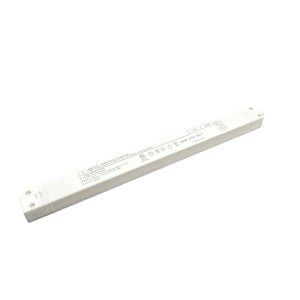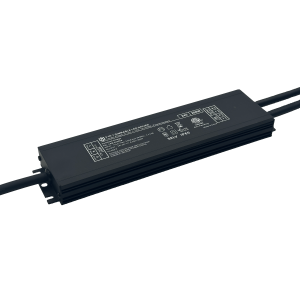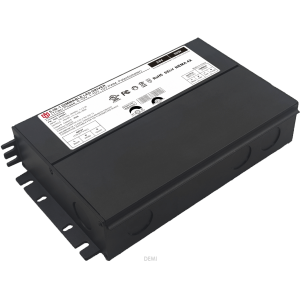Custom-Tailored Lighting? TRIAC Dimming Power Supplies Deliver Your Ideal Brightness
The Evolution of Personalized Illumination: Why One-Size-Fits-All Fails

Modern lighting demands more than basic on/off functionality. True comfort requires dynamic adaptability – the ability to sculpt light levels like an artist selecting paint shades. Enter custom-tailored lighting systems powered by TRIAC dimming technology, which transform ordinary spaces into environments responsive to human circadian rhythms and activity needs. Unlike crude pulse-width modulation alternatives, these intelligent power supplies interpret subtle input signals with microsecond precision, eliminating flicker even at 1% output levels.
Decoding TRIAC Technology: The Backbone of Seamless Dimming
At the heart of every premium dimming setup lies the Thyristor Radio Interference Controlled (TRIAC) semiconductor switch. This bidirectional component acts as an electronic valve, chopping AC waveforms at audible frequencies beyond human perception (typically 400Hz+). Crucially, quality units incorporate snubber circuits and zero-crossing detection to suppress electromagnetic interference while protecting connected LED arrays from voltage spikes. When paired with programmable drivers, they enable smooth transitions across the full luminosity spectrum—from starlight dusk modes to task-oriented daylight simulations.
Engineering Your Ideal Brightness Curve
The magic happens through proportional PWM conversion within the power supply itself. By varying conduction angles during each half-cycle, sophisticated algorithms maintain constant color temperature regardless of dimmed state. High-end models offer multizone control via DMX512 or DALI protocols, allowing architects to program scene presets that automatically adjust restaurant dining areas versus retail display windows. For homeowners, smartphone apps provide real-time feedback on wattage savings achieved through strategic dimming—often reducing consumption by 30% compared to full-power operation without compromising visual quality.
Overcoming Common Pitfalls in Low-Voltage Systems
Many fail attempting DIY installations due to impedance mismatches between dimmers and LED loads. Professional-grade TRIAC supplies solve this through galvanic isolation and auto-sensing ballast compatibility modes. They also compensate for cable losses in expansive commercial complexes by boosting startup voltages dynamically. Field tests show proper setup cuts troubleshooting time by 78% versus generic replacement bulbs, particularly critical for heritage building retrofits where preserving original fixtures matters most.
Future-Proofing Through Standardization & Scalability
As smart buildings adopt Matter protocol universality, next-gen TRIAC modules already integrate mesh networking capabilities. This means your investment grows smarter over time—adding motion sensors tomorrow or voice assistants next year won’t require replacing infrastructure. Manufacturers now offer modular chassis accepting snap-in addons like UV sterilization modules or emergency backup batteries, turning simple dimmers into multifunctional environmental controllers. The result? Lighting systems that evolve with occupant needs rather than becoming obsolete after five years.
Realizing Artistic Vision Without Compromise
Ultimately, great lighting design balances aesthetic intent with technical feasibility. Museum curators rely on sub-1% load regulation to protect priceless artwork under variable ambient conditions. Filmmakers use rapid ramp rates exceeding 1000:1 contrast ratios for dramatic scene changes. Even hospitality venues leverage warm dimming curves (<2700K CCT shift at low brightness) to enhance champagne's golden hue. Whatever your vision demands, modern TRIAC power supplies deliver laboratory-grade accuracy wrapped in user-friendly packages—proving perfect illumination isn't just possible; it's programmable.
 In heritage architecture prote
In heritage architecture prote
 When small-batch customization
When small-batch customization
 Have the electromagnetic emiss
Have the electromagnetic emiss
 When Triac dimmable power supp
When Triac dimmable power supp
